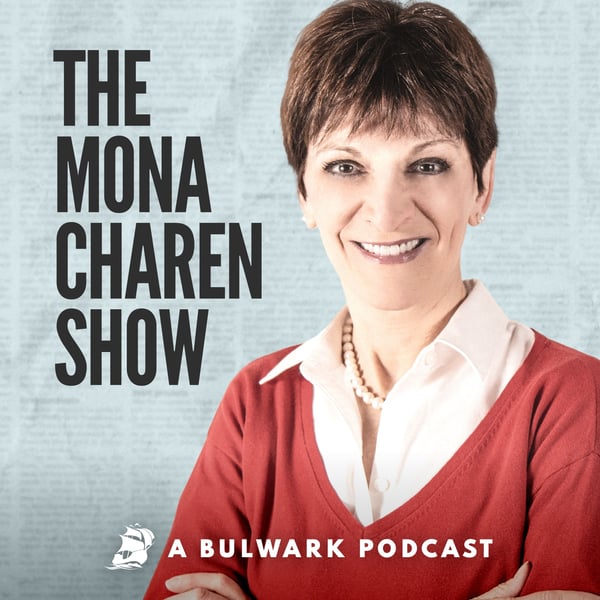Does the Law Allow Trump's Power Grab?
The Mona Charen Show
The Bulwark
4.6 • 1.3K Ratings
🗓️ 27 January 2025
⏱️ 37 minutes
🧾️ Download transcript
Summary
Referenced Cases:
-
Youngstown Sheet & Tube Co. v. Sawyer (1952) – Commonly referred to as the "Steel Seizure Case," it involved President Truman's attempt to take control of steel mills during the Korean War.
-
Korematsu v. United States (1944) – Upheld the internment of Japanese Americans during World War II; later criticized but not formally overturned until its repudiation in Trump v. Hawaii.
-
Ex Parte Endo (1944) – A companion case to Korematsu, ruling the detention of a loyal Japanese American citizen was unauthorized by statute.
-
Trump v. Hawaii (2018) – Upheld the Trump administration's travel ban but included the repudiation of Korematsu as part of the decision.
-
United States v. Wong Kim Ark (1898) – Affirmed the principle of birthright citizenship under the 14th Amendment.
-
INS v. Chadha (1983) – Declared legislative vetoes unconstitutional, affecting the National Emergencies Act.
-
TikTok-related Executive Orders and Litigation – Mentioned in the context of national security and executive overreach.
-
The U.S. Constitution:
- Article II: Presidential powers.
- 14th Amendment: Citizenship clause.
- Article II: Presidential powers.
Transcript
Click on a timestamp to play from that location
| 0:00.0 | Welcome everyone to the Mona Charon podcast. |
| 0:12.8 | I'm really delighted this week to welcome Professor Stephen Vladick, he's professor at Georgetown Law School. |
| 0:20.1 | The Trump administration has come in with a blizzard |
| 0:23.7 | of executive orders and in order to get the big picture and to actually understand at a deeper |
| 0:31.3 | level, both the threats to the rule of law, but also the legal basis for some of these things. |
| 0:38.3 | I thought maybe we could dig into that. |
| 0:42.3 | So, first of all, thank you so much for joining me. |
| 0:45.3 | Thanks for having me. |
| 0:47.3 | Second, let's go to this whole concept of executive orders, okay? |
| 0:53.3 | A lot of people don't know where does executive order |
| 0:57.2 | power come from. I mean, you know, Justice Thomas is always asking at oral arguments, you know, |
| 1:03.3 | by what authority? And, you know, it's, it's worth asking, certainly in this case, where they are |
| 1:10.7 | asserting this sweeping power. |
| 1:14.5 | Well, Trump believes he can do just about anything. |
| 1:18.0 | But let's talk about the history of executive orders. |
| 1:21.9 | Sure. |
| 1:22.3 | So, you know, the Constitution gives the president in Article 2 the power, indeed the obligation to, quote, take care that the laws be faithfully executed. |
| 1:32.5 | And, you know, Mona, going back pretty close to the founding, presidents have interpreted that provision as basically a invitation, if not a requirement, that the presidents have their own views of the law, |
| 1:46.8 | that when Congress passes statutes or when acting based on constitutional provisions, |
| 1:51.9 | it is both necessary and appropriate for presidents to articulate what they believe the law |
| 1:56.8 | allows, what they believe the law requires. |
| 1:59.2 | So, you know, in the abstract, executive orders are not per se controversial. |
... |
Please login to see the full transcript.
Disclaimer: The podcast and artwork embedded on this page are from The Bulwark, and are the property of its owner and not affiliated with or endorsed by Tapesearch.
Generated transcripts are the property of The Bulwark and are distributed freely under the Fair Use doctrine. Transcripts generated by Tapesearch are not guaranteed to be accurate.
Copyright © Tapesearch 2025.

